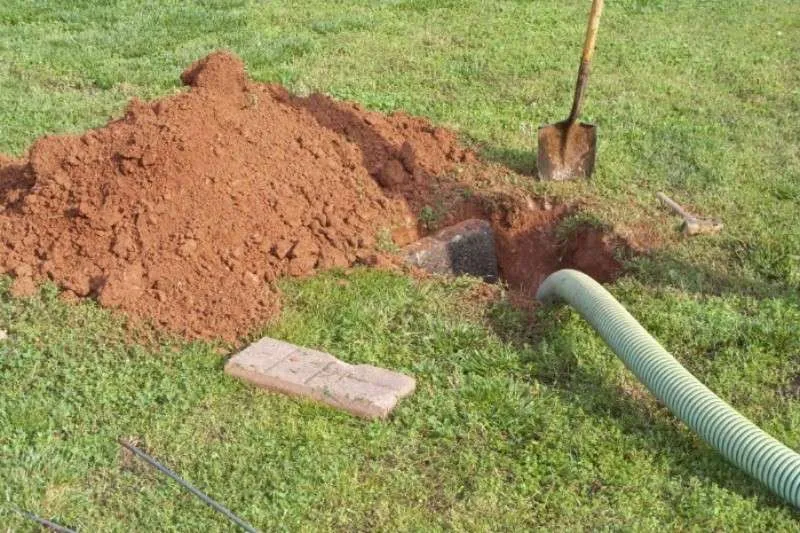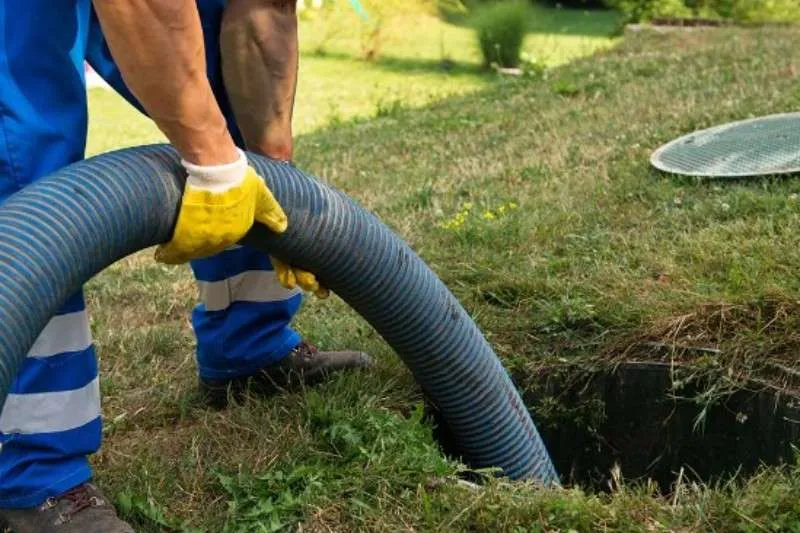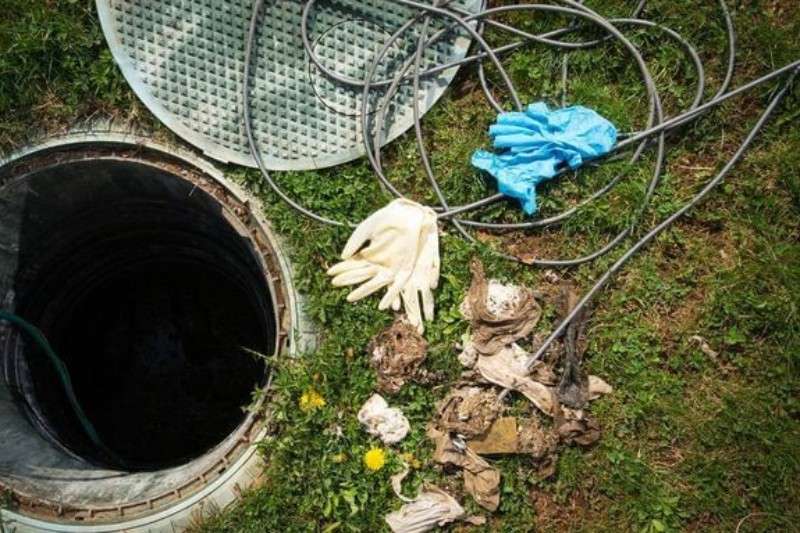Septic tanks are often an afterthought since they work quietly in the background. But it’s important to stay on top of septic tank maintenance to prevent issues such as backups and blockages down the road. Taking preventive measures can save you time, money, and stress later.
In this blog post, we will review some septic tank maintenance tips to help keep your septic system functioning properly and running smoothly so you don’t have any surprises.
A brief overview of septic tanks and their importance
Septic tanks are essential to a property’s plumbing and wastewater management system. It is important to keep them well-maintained, as failure to do so can cause damage that can be costly and hard to fix. Regular septic tank maintenance helps ensure it runs smoothly and effectively while reducing the risk of significant problems.
The need for regular maintenance
To your trash can help ensure your septic tanks remain in good condition, here are a few essential septic tank maintenance tips:
1. Conduct Regular Inspections
Regularly inspecting the septic tank is important to ensure it works correctly and there are no signs of leakage or damage. You should also check for any blockages in the pipes that connect your septic tank to the house.
2. Pump Out the Septic Tank Regularly
It is important to pump out your septic tank regularly to ensure it does not become overloaded with solid waste particles, which can lead to clogging and other problems. Depending on the size of the tank that fills your septic tank or garbage disposal and how many people use it, you may need to pump out the tank every 1-3 years.
3. Use Natural Cleaners or Septic Tank Treatment Products
Using natural cleaners or septic tank treatment products balances the tank’s beneficial and harmful bacteria. This helps keep the wastewater system working correctly, reducing the risk of blockages and other problems an imbalance in bacteria can cause trash.
4. Handle Waste Materials Carefully
It is important to be careful with what you put into your septic tank since foreign objects or chemicals can disrupt its balance, leading to costly repairs. Do not add anything other than wastewater and biodegradable materials into your septic tank.
Regularly inspect and pump your septic tank.
Regular septic tank inspections and pumping are essential for your septic system’s proper maintenance and continued health and longevity. Inspections should be conducted at least once every three years to identify potential problems before they become serious. Pumping is typically recommended every three to five years, depending on the size of your septic tank and the number of people in your home.
The benefits of timely inspection and more frequent pumping out are numerous. Regular inspections will help you detect any clogs or blockages in your system before they become a major problem. Additionally, it can help identify any problems with the septic tank lid, valves, or other components that could lead to costly repairs if not addressed. Pumping your septic tank pumped removes the solid and liquid waste that can accumulate in the bottom of the tank and cause clogs, backups, or other issues.
By following these septic tank maintenance tips and having regular inspections and pumpings done on your average household septic system well, you can be sure it will continue to work properly for years. Proactive maintenance is essential to prevent costly repairs and ensure your septic system runs without issues. Regular maintenance allows you to keep your home’s septic tank running like new for years’ effluent filter.
Conserve water to reduce septic tank stress.

Concerning septic tank maintenance, conserving water is one of the most important tips. Not only does reducing your water usage help you save money on utility bills, but minimizing excess water and flow can greatly extend the life of your septic system.
Firstly, homeowners should identify and repair any leaks in fixtures such as toilets or faucets. Damage due to leaking fixtures can cause long-term damage to your septic tank, system, and surrounding area.
Water-saving Tips for household use and the Impact of reduced water usage on Septic tank lifespan
There are numerous water-saving tips households can employ every day to reduce their water usage:
- Install low-flow showerheads and faucet aerators: Installing these devices is one of the easiest and most cost-effective ways to save water.
- Take shorter showers: Showers can use water, so keep your shower time short.
- Turn off the tap when brushing your teeth or shaving: This simple tip can help reduce water usage significantly over time.
- Check for running toilets: Listen for a hissing sound that may indicate a leak or other issue.
- Install water-efficient appliances: Appliances such as washing machines, dishwashers, and toilets with low flush ratings can help save hundreds of gallons of water each year.
Reduced water usage also directly impacts the life of your septic tank. Consistent water flow into and out of the septic tank is necessary for proper functioning, but overuse of boiling water can cause solids to build up over time, resulting in a shorter lifespan for your septic system.
Proper waste disposal in septic systems
Proper waste disposal is essential for the health and longevity of your septic system. Anything that cannot be broken down in a reasonable amount of time should not be put into the tank, as it will take up space and prevent liquids from reaching the drain field. This includes toilet paper, towels, dental floss, feminine hygiene products, cat litter, coffee grounds, cooking oil, etc. These items can lead to unnecessary buildup in the septic tank and interfere with its operation.
In addition to proper disposal of waste that decomposes too slowly, there are certainly other materials you should avoid putting into your septic system or altogether using a garbage disposal. These include toxic cleaners, bacteria additives such as paint thinners or solvents, acidic cleaning products, household waste, and medication. These items can be very harmful to the balance of your septic system if they enter its sump pumps.
Non-biodegradable waste in a septic tank and drain field will cause problems, including clogged pipes and drains, foul smells, and damage to the soil that receives effluent from the septic tank and drain field below. It can also reduce the space available for garbage disposal in your septic tank and drain field and cause it to be clogged and drain-filled more quickly, leading to overflow and a higher chance of soil and water systems contamination.
Avoid using harsh chemicals and additives.

Safely maintaining and cleaning your septic tank is key to keeping it in good condition and avoiding costly repairs. Using harsh chemical drain openers and additives can damage the bottom, keep your septic system’s components, contaminate nearby groundwater, and create unsafe conditions for your family.
Among the potential damages caused by chemical cleaners is the destruction of beneficial bacteria within the tank, the corroding of metal tank parts and pipes, the clogging of inlet and outlet filters, and foam buildup that can lead to a system malfunction.
Using safer alternatives for cleaning and maintaining your septic tank is important. Biological additives are a great way to add beneficial bacteria to your healthy septic system so they can break down solids. You can also use a specialized septic tank cleaner with natural enzymes and bacteria to help break down solids in the tank.
Regular maintenance, such as pumping out the tank, inspecting the components of the septic system inspected well, and checking for blockages, are essential for keeping your septic tank in good working order.
Protect and maintain the drain field.
The drain field is the last component of a properly functioning septic system, so taking the necessary steps to protect and properly maintain this important part of your home is important. Here are a few tips that can help you ensure long-term septic tank performance:
1. Prevent soil compaction and erosion by avoiding parking vehicles on or near the drain field and avoiding any construction work in that area.
2. Protect your drain field from inclement weather by planting grass over it or constructing a cover to prevent rainwater drainage systems from pooling into the system.
3. Be aware of any changes in drainage patterns around the drain field – such as water pooling or lush growth – which could indicate a problem with your septic tank.
4. If you notice any of the signs above, contact the local health department or a septic tank professional to inspect the system and determine what needs to be done.
FAQs
How often should I inspect and pump my septic tank?
The frequency of septic tank inspections and pumpings will depend on your septic system maintenance part and the septic professional’s size, age, and usage of septic professional. Generally speaking, inspecting and pumping your septic tank every three to five years is recommended.
Can I use regular household cleaners with a septic system?
No. Regular household cleaners and detergents can damage your septic system over time and disrupt the balance of bacteria in the septic tank additives well. Using products specifically designed with septic tanks or natural alternatives such as drain cleaners such household chemicals such as baking soda, vinegar, and lemon juice.
What are some common signs of septic tank problems?
Some common signs of septic tank problems include slow drains, gurgling noises in the pipes, and bad odors. If you notice any of these issues during septic service, contact a certified septic professional first for an inspection and advice on how to best address the issue.
How can I tell if my drain field is failing?
A failing drain field may exhibit signs such as wet spots on the soil’s surface, sewage odors, or pooling water. If you suspect your drain field is failing, contact a certified professional immediately for an inspection and advice on how to proceed.
What should I avoid putting into my septic system?
You should avoid putting non-biodegradable items into your septic system from garbage disposal and trash cans and treat household waste such as diapers, baby wipes, cat litter, food scraps, and feminine hygiene products. These items can clog pipes and damage the tank’s internal components.
Can I plant trees or build structures near my septic tank and drain field?
No. Trees and other structures should not be planted or built near your septic tank or drain field, as the tree roots can damage system components.
Conclusion
Septic tank maintenance is important to maintain your home’s plumbing system properly and efficiently. Proper care and maintenance can ensure that your septic systems work reliably for years. Regularly inspect and pump your septic tank to extend its life, conserve water to reduce septic tank stress, and avoid flushing non-biodegradable items and food waste down your toilet or drains.


